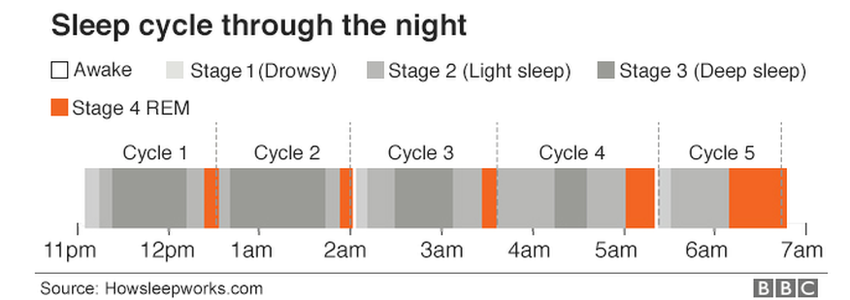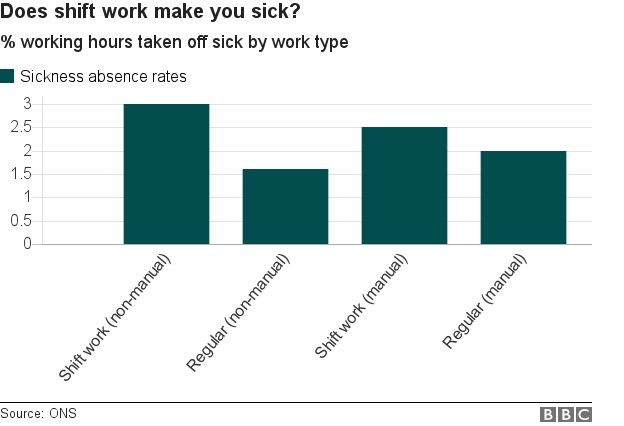10 things to know about sleep as the clocks go back
3. We need different types of sleep to repair ourselves
After we fall asleep we go through cycles of "sleep stages", each cycle lasting between 60 and 100 minutes. Each stage plays a different role in the many processes that happen in our body during sleep.

The first stage in each cycle is a drowsy, relaxed state between being awake and sleeping - breathing slows, muscles relax, the heart rate drops.
The second stage is a slightly deeper sleep - you may feel awake and this means that, on many nights, you may be asleep and not know it.
Stage three is deep sleep. It is very hard to wake up during this period because it is when there is the lowest amount of activity in your body.
Stages two and three together are known as slow wave sleep which is usually dreamless.
After deep sleep we go back to stage two for a few minutes, and then enter dream sleep, also called REM (rapid eye movement). As the name suggests, this is when dreaming happens.
In a full sleep cycle a person goes through all the stages of sleep from one to three, then back down to two briefly, before entering REM sleep.
Later cycles have longer periods of REM, so cutting sleep short has a disproportionately large effect on REM.
4. Shift workers who have disturbed sleep get sick more often
Shift work has been associated with a host of health problems. Researchers have found shift workers who get too little sleep at the wrong time of day may be increasing their risk of diabetes and obesity.
Shift workers are significantly more likely to report "fair or bad" general health according to a 2013 NHS study, which also found people in this group were a lot more likely to have a "limiting longstanding illness" than those who don't work shifts.

People who work shifts are significantly more likely to take time off sick, according to figures from the Office for National Statistics.
There is a far bigger gap for non-manual workers than manual workers - lack of sleep seems to have a bigger impact on those doing more sedentary jobs.
...[ Continue to next page ]
Share This Post





